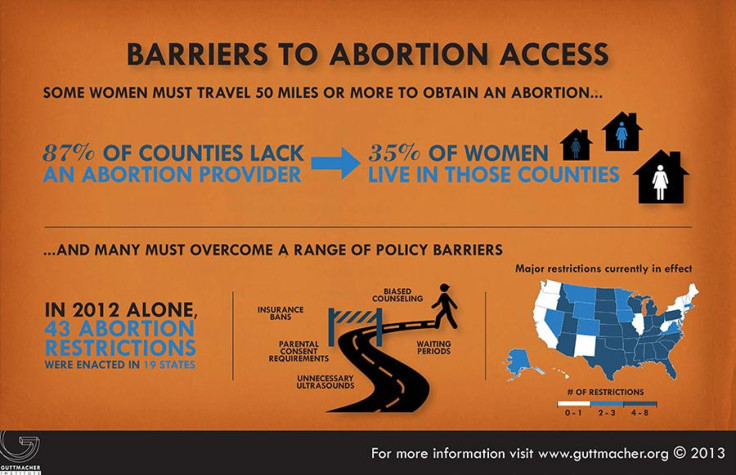Alabama Lawmaker Claims Baby Is 'Largest Organ In A Body'

An Alabama lawmaker pushing a bill to limit access to abortion facilities in the state has claimed the nature of the procedure should require stringent regulations, because it involves removing the “largest organ” from a woman’s body.
“When a physician removes a child from a woman, that is the largest organ in a body,” state Rep. Mary Sue McClurkin, R-Pelham, recently told the Montgomery Adviser, explaining why her bill is necessary. “That’s a big thing. That’s a big surgery. You don’t have any other organs in your body that are bigger than that.
The largest human organ is, in fact, the skin. As critics have been quick to point out, a fetus, which has its own developing organs, is not an organ.
The Alabama House of Representatives is expected to take up the abortion legislation, known as HB 57, on Tuesday. The bill would require physicians at the state’s five remaining abortion clinics to have admitting privileges at local hospitals, require clinics to follow ambulatory building codes and make it a felony for a nurse, nurse practitioner or physician's assistant to dispense abortion-inducing medications.
Supporters of the bill argue those regulations are needed to ensure women are receiving an adequate level of care. But critics point out that it could be extremely difficult for small abortion facilities to abide by those rules, since it would require costly and time-consuming building renovations. Plus, as noted in Mississippi, where the state’s only remaining abortion clinic faces closure unless it can meet similar guidelines, religious-affiliated hospitals are unlikely to grant admitting privileges to physicians who perform abortions.
Approximately 12 women in the United States died from complications resulting from abortions in 2009, when about 784,507 of those procedures were performed, according to the Centers for Disease Control and Prevention.
A string of Republican candidates in the 2012 election made similarly unscientific claims to support their opposition to abortion. The most high-profile, former Rep. Todd Akin, R-Mo., alleged women are biologically capable of warding off pregnancy if they are the victims of “legitimate rape.”
© Copyright IBTimes 2025. All rights reserved.





















